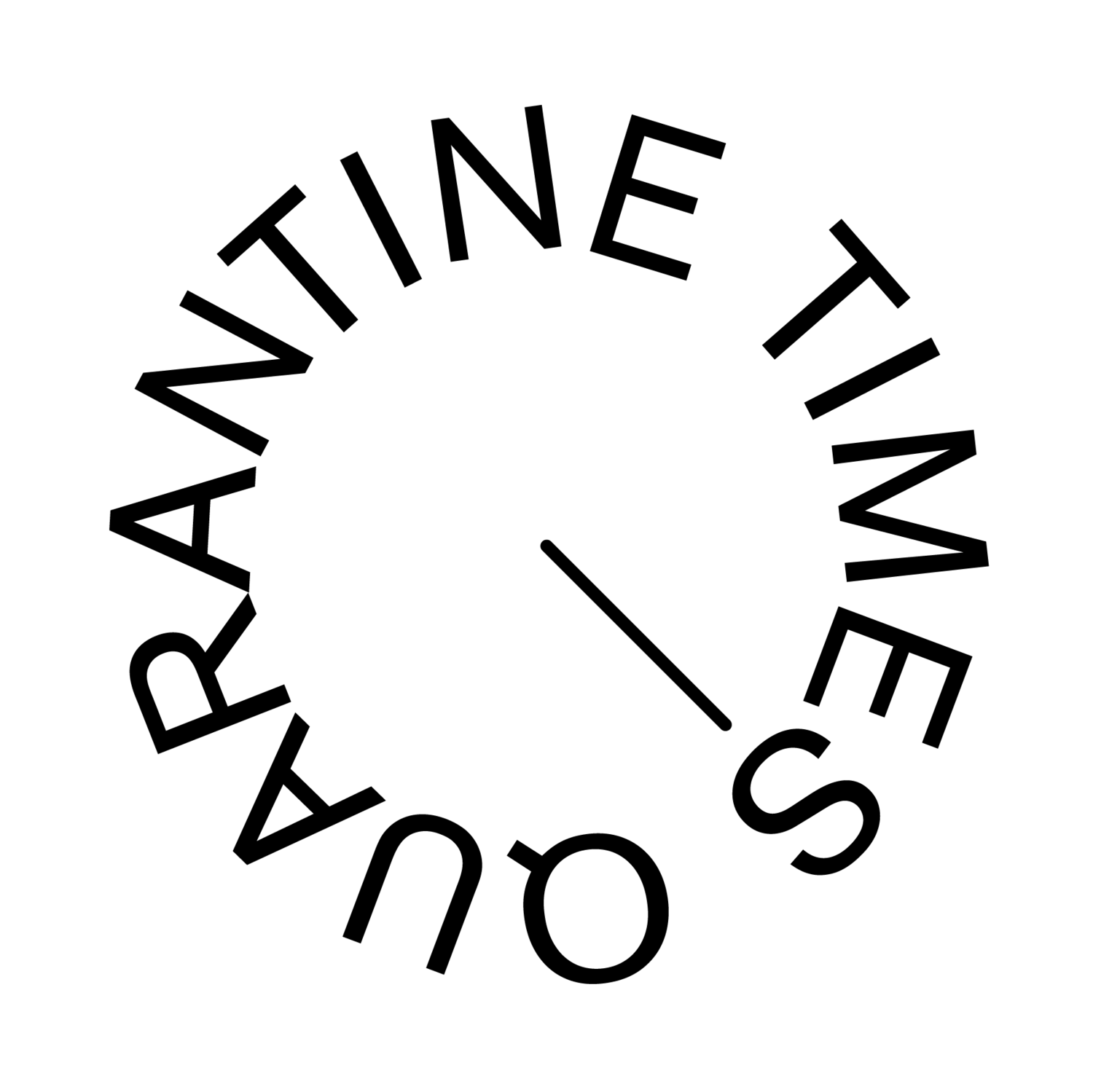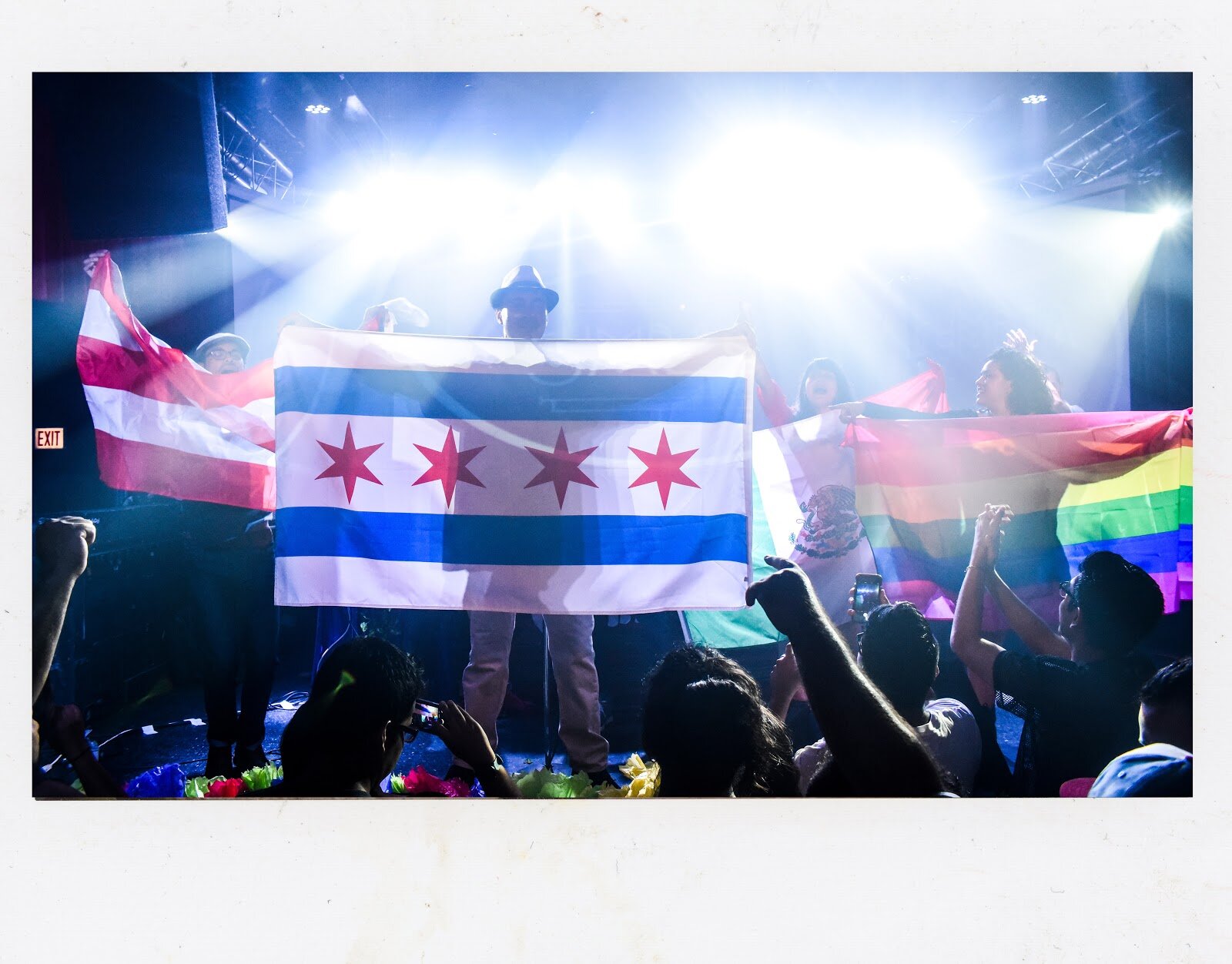To The Creative Class Of 2020
05/26/20
By David Chávez
Illustration by Fausto López.
Let’s look beyond desolation to see this as a call to action. The time is now for the creative class of 2020 to bring us into a new future.
I grew up in Chicago’s Logan Square neighborhood in the 80’s and 90’s, riding my bike, playing basketball in the alley, and listening mostly to house music on the radio and from mixtapes. In the late 90’s and early 2000’s I organized some underground parties, started DJing, caught the travel bug, and dug deep into international music and culture. This journey took me from a career in social service to music programming and event curation.
Photos courtesy of the author
For the last 15 years, I have been the program director at a few different venues in Chicago. I’ve curated festivals and worked independently under my own brand for some time as well. I’ve always approached my work as a partnership with people to come together to celebrate in safe spaces. Overall, I strive to connect people to the highest quality artistry that I can, with an intentional focus on elevating marginalized voices to bigger platforms, and bridging communities through access to musical experiences they normally wouldn’t have easy access to. You could say it’s my social practice. For me, I’m not more important than anyone else in this relationship, just someone who has learned to make things happen for a greater social good.
Festivals organized by David Chávez in Chicago. Photos courtesy of the author
As we all know, COVID-19 came and wreaked havoc on our music industry. Gigs evaporated, projects stopped, venues closed, the artists and workers that relied on those jobs to survive got screwed, and now everyone is waiting for the industry to adjust. So many of the small and independent businesses that are part of this ecosystem were also screwed and may not recover. Realistically, we can potentially see the complete collapse of our beloved music nightlife, one that supports so many of us in so many ways. To fight against that, please support the Chicago Independent Venue League (CIVL) in whatever way you can right now.
COVID has in many ways highlighted the vast inequalities that exist within our industry. We can see now how financially ill-prepared we all were when the floor dropped out suddenly; how fragile the livelihoods of those involved are because of how little artists, small businesses, and freelance workers actually make. The non-stop hustle for gigs and business is real and a common stressor for independent artists and small businesses. We saw our cherished small independent music venues, who were already struggling to hang on by a thread, be the first to close; and they will likely be the last to open. They all truly fear that they won’t even be able to reopen.
Photo by Carolina Sánchez
On the other end of the field, the corporate media at the top of the music industry ladder continue their work with the security of their safety nets to fall back on. Larger corporate promoters and institutions have the economic backing and ability to insulate and defer a lot of their financial commitments to the next calendar cycle. I’m not saying they haven’t been hurt financially as well, but the impact on them is far less felt than the on smaller independent sector. The question for them is not “will we survive?” but rather “how do we minimize our loss?”
Someone can probably write a paper on how the music industrial complex is just basic US capitalism exploiting people based on race, class, and gender, and how it tries to reduce art to a product, and sees artists as just cogs in a wheel of a money-making machine for a small minority of very rich white men. But that’s a whole lot to unpack right here, right now…
One thing is for certain, when the shit hit the fan, we as a creative class were not ready. Though, to be fair, we weren't ready because we never really had a chance to be. It’s not that we just didn’t think about our future or didn’t work hard enough to put some money in the bank if something should happen. It’s that we were busy hustling, at times for peanuts, most of us living gig to gig or ch- to check trying to make ends meet.
Photos courtesy of the author.
I still have my job, but I remember what this feels like; I was a freelance cultural worker during the last recession. I remember I felt like I was always swimming against the current, up against gravity, and that the moment I stopped I would fall or drown. I get anxiety still thinking about it. What's going on now, however, worldwide pandemic aside, is far worse, because there is no water to swim in. I cannot imagine the depths of desperation or the heights of mounting concern my friends in the industry are dealing with at this moment.
As cliché as it sounds, all I can say is that we will get through this. If you think about it, it takes a huge amount of courage, will, and determination to be a working artist and cultural worker to begin with. You put so much of yourself into your work, vulnerabilities and all, and then put it out on display, open to public criticism. That takes nerve! You work and create within a system and a society that at times may not see the value or impact of your work, because they have been conditioned to consume entertainment, rather than appreciate artistic expression. That is not an easy road to travel, and the road just got harder. But I truly believe we will all become much stronger because of it.
We have been locked in for over two months, for better or for worse. On an emotional level, we’ve gone through the numbing shock, the freak outs, the deep reflection and reinvention, the inspiration, and back again. Strategizing on how we move forward to stay alive is at its peak right now. It is at this very precise moment that I want to remind us all that we have an opportunity here to reset. Not only to reset what is happening in our own lives, but to reset the dynamics around us that got us to where we are now. We need to communicate and come together to reconstruct the kind of world we want to live in.
Now, more than ever, we need your strength and resilience, your light to illuminate the truth. We need to see and hear through your eyes and ears so we can feel something beautiful right now. We need your work to help us reflect and understand, and we need your creativity to help us imagine the possibilities of a better, more just future.
“Chicago for the People” poster. Image courtesy of the author.
This is a moment for us to strengthen our relationships with each other, to build networks, and organize coalitions. It is an opportunity to make things more equitable in our industries, and in the world, by challenging the power dynamics that exist. This is when we fight for the inclusion of artists, women, the disabled, the undocumented, and people of color in positions of power at every level and in every aspect of the ecosystems we work within; to campaign for the rights that all workers and marginalized people struggle for, because we are them. Art is labor. This is also an opportunity to re-evaluate our relationship with the earth, honestly.
This is our community, these are the people with whom we share a struggle, our brothers and sisters. This is how the doors open for us, how we move towards economic justice, environmental justice, and how we protect ourselves from the innate corruption of a capitalist system that values profits over people. This is the time when we fight for us, as a creative class, for the benefit of everyone.
David Chávez at the Jay Pritzker Pavilion in Chicago’s Millennium Park.Photo courtesy of the author.
David Chávez is a festival curator and event organizer in the city of Chicago. He's worked in the industry for over 15 years presenting artists from all over the globe in venues and theaters as well as festivals across Chicago. Throughout his career, he's helped broaden the audience for international music in the city, debuted many first time artists, helped launch music programs and festivals at various venues, commissioned new musical projects, and consulted major arts and educational institutions. He is also a DJ and producer who’s worked in independent radio, held DJ residencies in Chicago pre-COVID, has played abroad in Europe, Asia, and Latin America, and recently started a record label with his Future Rootz crew.
Polaroid Photo Series of Chicago’s Creatives by Carolina Sánchez / IG: @carofotos9
David Chávez worked on this piece with Stephanie Manriquez, the Quarantine Times Tuesday editor. Each week, Stephanie selects a Chicagoan to share a commissioned creative response to the pandemic.








